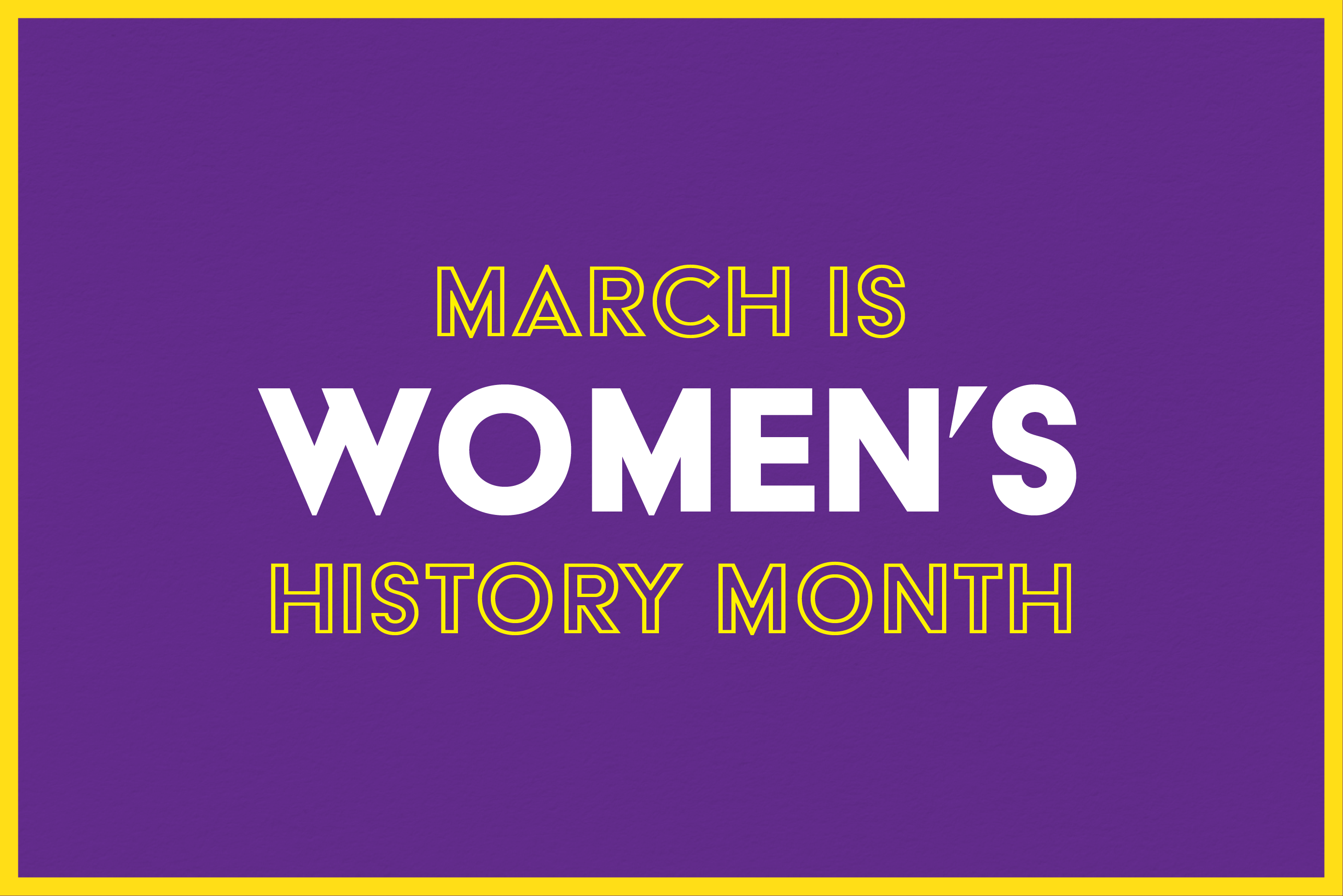March is Women’s History Month. This is a month filled with celebrations that honor the past, present, and future of women in our world.
The Beginning of Women’s History Month
Each year we celebrate March as Women’s History Month, but how did this honorary month begin? The roots of Women’s History Month can be traced back to the first ever Women’s History Week celebration in 1978. Organized by the Education Task Force of Sonoma County Commission on the Status of Women in Santa Rosa, California, this honorary week was intended to be a celebration of women’s contributions to American history. The following year, women across the country followed suit and began planning their own Women’s History Week celebrations.
Women’s activist groups began lobbying for a National Women’s History Week to be recognized by the federal government. Their efforts were successful and President Jimmy Carter established the week of March 2-8 of 1980 as Women’s History Week. This success was followed by a bipartisan effort led by Senator Orrin Hatch (R-Utah) and Representative Barbara Mikulski (D-Maryland) who co-sponsored a Joint Congressional Resolution designating the week of March 7, 1982 as Women’s History Week. This resolution became a yearly affair until 1987, when the National Women’s History Project (NWHA) was able to convince Congress to begin celebrating Women’s History Month. Since 1988, both Presidents and Congress have passed resolutions naming March as Women’s History Month.
Women Leaders from Illinois
Illinois history has been filled with trailblazing women who have left their mark on the state. One of the first women to leave their mark on Illinois was Lottie Holman O’Neil, who was the first woman ever elected to the Illinois General Assembly. In 1922, she was elected to the Illinois House of Representatives as a Republican. In 1950, Lottie was elected to the Illinois State Senate, and remained in this position until she retired in 1963 at age 84. During her time in office, Lottie worked to curb state spending, improve state aid to children with disabilities, and advocate for equal rights for women, including the right for women to serve on juries.
Another trailblazing woman from the state of Illinois was Ruth Hanna McCormick, who served in the U.S. House of Representatives. She was elected in 1928 and became the first woman to ever serve on the House Committee on Naval Affairs. Ruth was most well-known for her active role in women’s suffrage, even serving as chairman of the Congressional Committee for the National American Woman Suffrage Association and chairman of the first woman’s executive committee of the RNC.
A more recent woman to make history in Illinois is the first woman to ever hold the office of Lieutenant Governor, Corinne Wood. In 1996, Corinne was elected to the Illinois House of Representatives where she served for one term before she was elected as Lieutenant Governor in 1998. She is most well known for introducing Scott’s Law, which requires drivers to switch lanes when passing emergency vehicles with their lights on, and a tax return initiative for breast cancer research, known as A Check for a Cure.
Bringing us to women who are currently making history, Illinois Republican House Leader Tony McCombie made history in 2023 as the first woman ever elected to lead the House Republican caucus. First elected to the Illinois House of Representatives in 2017, Leader McCombie has been known as a staunch supporter of fiscal responsibility, ethics reform, and empowering other women in politics and leadership roles.
The Future of Women’s History Month
As a part of Leader McCombie’s continued initiative to promote women in leadership, the Illinois House Republican Caucus is hosting its annual Emerging Women Leader’s event on Tuesday, March 5th. This day-long event is filled with seminars and networking opportunities for up and coming women who are looking to grow their skills.
Stay tuned to The Caucus Blog for updates and photos of this year’s Emerging Women Leader’s event!
